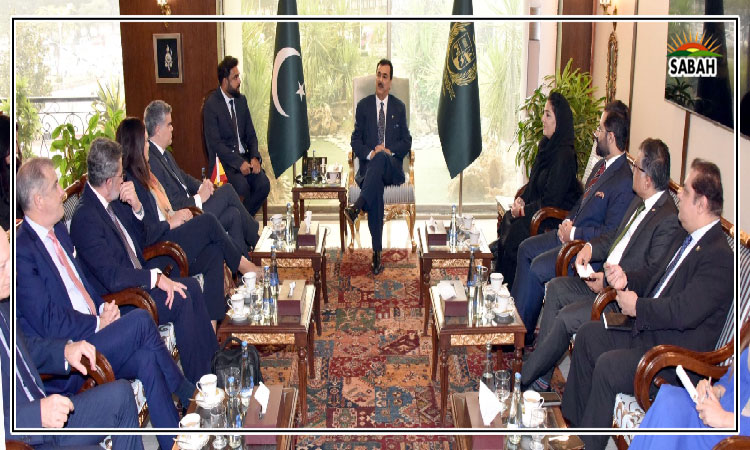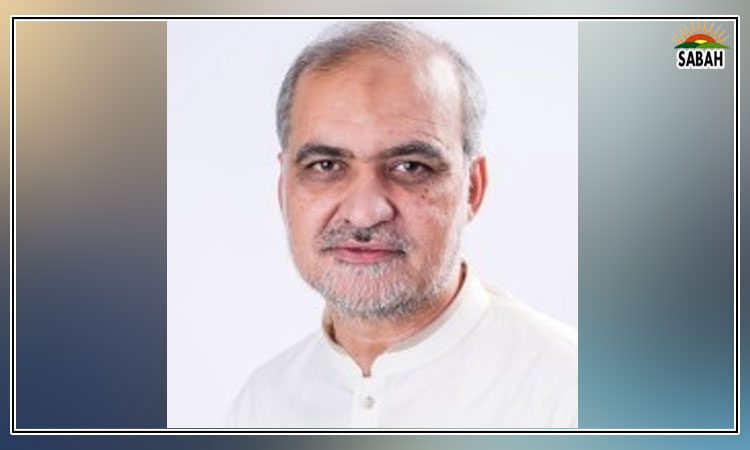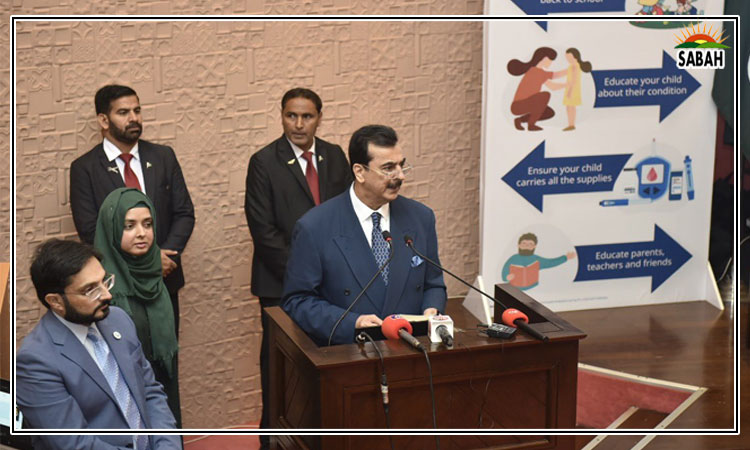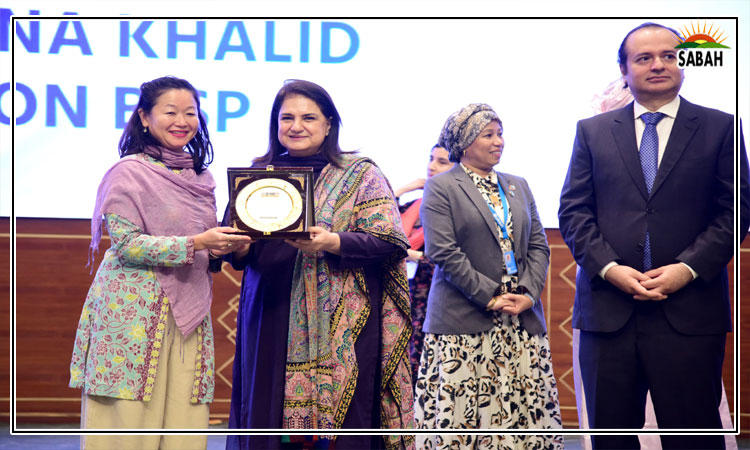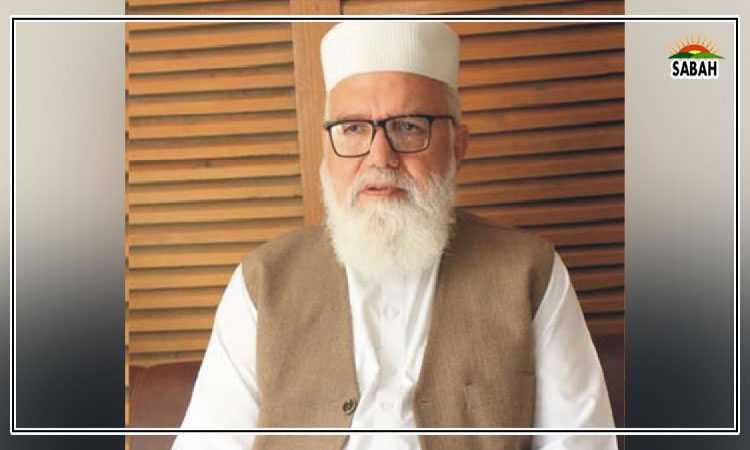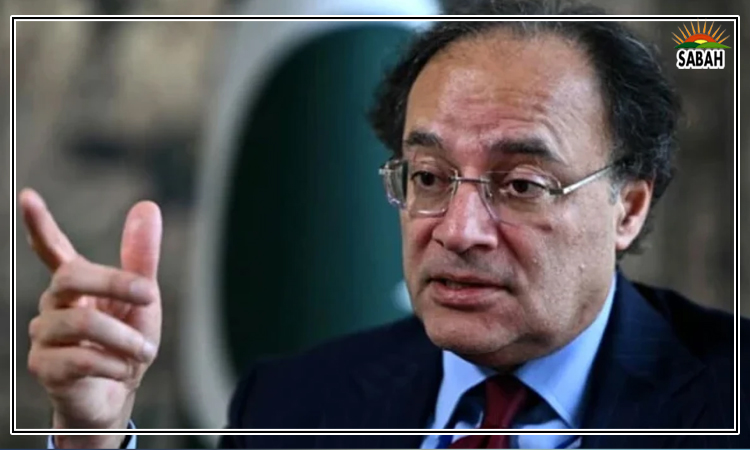Spiritual economics…Farrukh Khan Pitafi
This piece could have easily been called voodoo economics. But the term does not do justice to what we are about to discuss. As per the Oxford dictionary, voodoo economics means an economic policy perceived as being unrealistic and ill-advised, in particular a policy of maintaining or increasing levels of public spending while reducing taxation. So despite its magical name, it explains a set of real policy choices no matter how poor or ill-advised they might be. Not what we are looking for at all.
To understand what we have to focus on, you will have to read three anecdotes. But before we begin, let me remind you that even though this piece is written on the day of the budget speech, it is not about the fiscal policy. For one, the speech hasnt been given at the time of writing and filing of these lines. For two, while the government does an admirable job of putting a brave face on the appalling and wonky numbers we have come across so far, we have spent an entire year obsessing about the economy and know what not to expect. With that, lets begin with our anecdotes.
An old and visibly poor woman is standing before a cashier at a bank. She looks at the man and says, Son, please check my account and see if the amount has increased. The man checks and, if to pre-empt her disappointment, says, You should thank God, auntie, that the amount hasnt increased. It is usury and therefore haram (forbidden by religion). With misty eyes, the woman replies, Yes, son, I do thank God, but I could really use some money.
The year is 2012, and the PTIs chairman is leading a march against drone strikes. I am covering that march. Finally, I get an opportunity to interview him. The format is interesting. My cameraman and I have to climb aboard his vehicle, which would resume its journey, and within an allotted time, I ask my questions, record answers and disembark. Neat plan. Except he is sitting in the front seat, and my cameraman and I are sitting in the rear seat next to Javed Hashmi. If only a Mr Hashmi could scooch a little, the cameraman could swap seats with the subject, and we could get our perfect frame. Only that Mr Hashmi refuses to budge. With a heavy heart, we start recording an interview which is proving nothing short of a gymnastic ordeal for the cameraman.
After inquiring briefly about his march against drones, I ask about his economic vision because he has helpfully linked the two in his opening answer. He says his march will put an end to the drone strikes. Consequently (his words), the US will end its military presence in Afghanistan, leading to regional stability. After this, he will contact the Pakistani expat community to invest in Pakistan. Once that happens, the economy will grow. I humbly point out that even if taken at face value, there are many moving parts in his fairly linear plan. What happens if one of these parts fails to materialise? He says he is sure that will not be the case. I persist. After tolerating my indiscretion twice, he explodes: What do you mean it will not happen. It will if I say so. With that, the vehicle suddenly comes to a halt, and we are asked to disembark. Our interview is over.
A few years before that, some of us are invited to interact with him. After the initial discussion, someone asks him about his political vision. After praising the Scandinavian examples of the welfare state, he declares that he believes in spiritual democracy. Despite myself, I end up shooting my mouth. What? I ask, Where spirits get to vote?
The ambiguities of a politicians vision aside, you will agree with me that our political and economic outlook is shaped by a bunch of narratives that are structured around faith. In this battle of proposed piety and superstition, real economic matters are left far behind. Want to get rich? Be pious, and you will get rich. In a financial hole, perform this spiritual act or that, and you will be rescued soon. Please, note that I do not quarrel with the peoples deeply held beliefs. In the world of financial chaos, the ongoing cost of living crisis and desperation, prayers have a significant role, even for the sake of the placebo effect. But in terms of statistical probabilities, wishes and prayers can never replace actions and the awareness of the factors that contributed to your economic woes and possible courses of recovery. Sadly our unresolved ideological trappings restrict the chances of our financial success.
Lets take one issue that raises its head every now and then. I am sure I have brought this to your attention before, but it merits repeating now. The idea of an interest-free economy is a gift that keeps giving. As illustrated earlier, usury is prohibited in Islam. From usury, our religious lot has concluded that all forms of interest are also haram. Usually, the prohibition of a component of something as critical as the economy holds only when a healthy alternative is available. Having studied religious canon in-depth and the contrived solutions that our banks offer in the name of Modarba and Musharka, I posit that they are feeble attempts to present interest in new bottles. In fact, if you study history closely, you will notice that for fourteen centuries, this has been a proverbial thorn in our side. Mansoor Hallaj met his devastatingly horrible fate because he was critical of the then-caliphs reliance on an interest-based economy. No permanent solution has so far been found.
Let me qualify the importance of interest in the evolution of civilisation with a thought experiment. Nothing like Schrodingers cat or quantum suicide. A simple one.
Suppose you are an inventor, and you have invented something valuable. Lets say a functioning quantum computer that works at room temperature. You want to mass-produce it, and you need capital for that. You go to a lender. He asks for collateral. When there is none, he agrees to the condition that if you fail to repay the sums with high interest in time, he will remove a pound of flesh from your body. Cruel, I know, but still humour me. You get money and start manufacturing. Now if you succeed, the human civilisation has taken a giant leap forward, and you are a billionaire. If you fail, the loss is only of one individual you. I have not seen any alternative to the incentives involved from our lot.
These ideological restrictions wreak havoc on our choices. You want to be a tourist attraction, but you want foreign tourists to conform to your value system. You want your entertainment industry to boom but declare music, a womans dance or glamour against your ethos. With this kind of attitude, you know you cannot go far. Perhaps it is time to decide for once and for all what you want to be. A spiritual economy which is still under construction for centuries. Or a successful one.
Courtesy The Express Tribune




